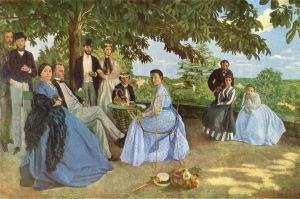What is staring you in the face?
 Thursday, October 17, 2013 at 10:26PM
Thursday, October 17, 2013 at 10:26PM 
Bright sunshine beckoned the other day and I tied on my runners and trotted outside. With my headset plugged into my iPhone, I hit the music button, ready for a brisk walk. Instead of Emeli Sandé, I got thundering silence. The bounce went out of my step and I stared at my phone dumfounded.
Word count: 334 Reading time: 1-2 minutes
I punched buttons as if simple determination would make the songs magically reappear. When I pulled out the ear buds and stood there, I heard nothing more than the autumn leaves that rasped along the pavement. I resigned myself to a technology-free hour and moved on.
Without the cocoon of music to separate me from ambient buzz, I walked. Although it would be glorious to report that I heard something so significant that it inspired a brilliant short story or chapter, that didn’t happen. But I caught conversations from people’s yards. Jays scolded in a cedar tree. When a car drove past, the doughy sounds of its tires on the warm road reached me. A normal Sunday morning on the edge of Mt. Fromme.
My sharpened hearing changed to more focused looking and I saw, for the first time, the way the Steller jays’ wings appeared translucent against the sun. I breathed deep the rich humus smell rising from the earth. I touched the springy young needles on a hemlock tree.
Susan Sontag said, “A writer is someone who pays attention to the world.” When I plug into my tunes, I deny myself a chance to do just that.
When the latest iPhone 4 upgrade deleted my entire iTunes library it may have given me an inadvertent gift: I discovered that music piped directly to my brain doesn’t turn off only my ability to hear, it also dulls my senses of sight, touch, and smell. Maybe it sweeps me into what Jason Perlow calls the Sea of Stupid.
Do you have a habit, particularly one that is technology-dependent, one that diminishes your powers of observation? How do you overcome it?
***
Photo from Wikimedia Commons: Leaves in autumn, Tapis de feuilles en automne by hamon jp



